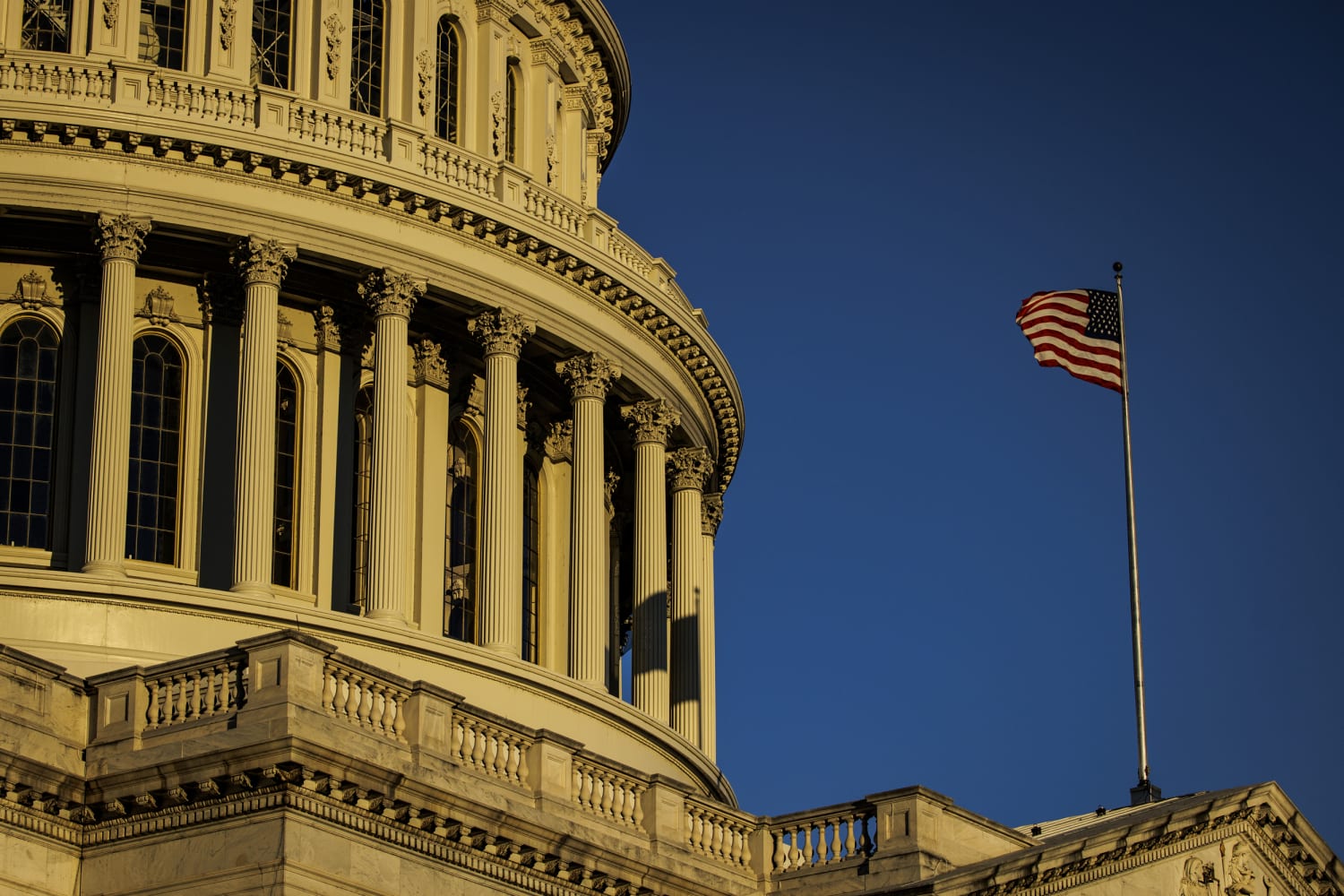WASHINGTON — Corporate America’s warnings of a financial catastrophe if Congress fails to raise the debt ceiling are falling on deaf ears among key congressional Republicans who find themselves increasingly at odds with the party’s longtime allies.
Republicans, who for decades closely aligned with the business community, have largely downplayed the alarm bells sounded by business groups, corporate CEOs and Wall Street investors over the economic consequences of missing an early June deadline for action on Capitol Hill. Instead, many GOP lawmakers vow to seek spending cuts in exchange for passing legislation that would let the U.S. government keep paying its bills.
The divide over the debt ceiling is the latest example of deep fissures that have formed in recent years between Republicans and corporate America, leaving some of the country’s biggest companies with a shrinking number of political allies in Washington at a particularly perilous time for the economy.
“The importance and sway that many big business groups had at one point is no longer important to the folks on the far right that we saw in the speakership fight,” said a political consultant who asked not to be named because of their work with corporate clients involved in the debt ceiling debate. “Over the past few years, the debt ceiling has become this boogeyman for the far right that they can rally their supporters around and fundraise off of, and nothing the Chamber of Commerce or a Fortune 500 CEO or anyone aside from maybe Donald Trump says is going to sway them.”
The GOP-business relationship has been on the rocks since the Trump administration, when former President Donald Trump’s policies on trade and immigration collided with those of the business community. Trump’s election in 2016 also shifted power in the GOP base to voters who were often more interested in upending Washington than in focusing primarily on tax cuts and deregulation.
“The constituencies that Republicans are increasingly representing skew working-class and poorer. Those constituencies want to disrupt the status quo and the establishment, which includes big corporations,” said Sam Geduldig, a partner with the lobbying firm CGCN Group who previously worked for Republican lawmakers on Capitol Hill. “The establishment generally wants to preserve the status quo. So I think we’re having a class war, and it’s playing right out in front of us in Congress.”
Tensions increased during the 2022 election cycle after a number of major corporations and trade groups decided to withhold donations to the Republicans who voted against certifying the 2020 presidential election results, shifting money instead to moderate Democrats, said a Republican lobbyist who does work for a variety of corporate clients. As business donations slowed, Republicans made up the difference with grassroots and small-donor fundraising — moving closer to severing the link between businesses and the GOP, the lobbyist said.
At the same time, many Republicans at the state and federal levels have rallied support from their base by painting big corporations as villains for their positions on issues from abortion access to gender and racial equality. In Florida, Gov. Ron DeSantis went after Disney when it criticized his proposal to ban discussion of gender and sexual orientation in kindergarten through third grade.
But perhaps the most visible form of the strained relationship between Republicans and the business community is on display in Washington, where GOP lawmakers have not hesitated to publicly shun the U.S. Chamber of Commerce after it started to increase its donations to Democrats.
Nearly a quarter of donations from the influential group, which for years worked in lockstep with Republicans on pro-business policies, went to Democratic candidates in the past two election cycles, compared with just 4% in 2016, according to data compiled by the campaign finance tracking website Open Secrets.
Republicans who have publicly attacked the Chamber of Commerce include Rep. Jim Banks of Indiana and Sen. Tom Cotton of Arkansas, who has characterized it as promoting “woke” policies, while House Speaker Kevin McCarthy, R-Calif., accused the Chamber of having “sold out” in 2020.
Neil Bradley, the Chamber of Commerce’s chief policy officer, said he is particularly concerned about the risk of the U.S. government’s defaulting on its debt given that many Republicans are downplaying the consequences and the White House is signaling the issue is nonnegotiable.
“Those two dynamics are raising a lot of concern about how we get through to doing what has to be done, which is an increase in the debt limit before we default,” Bradley said. “One of the things we’re trying to do is make sure people do understand that default will be catastrophic.”
The U.S. hit its statutory debt limit Thursday, prompting the Treasury Department to begin using “extraordinary measures” to pay the federal government’s bills. Those special financial tools allow the government to meet its payment obligations until at least June 5, after which Congress will need to act to prevent default, Treasury Secretary Janet Yellen said in a letter to lawmakers.
Despite concerns about being able to sway House Republicans or bring the White House to the negotiating table, business associations plan on a messaging campaign similar to the one they used during the last debt ceiling debate, in 2021, in hope of finding a bipartisan solution that sidesteps Republicans who are unwilling to budge unless their spending demands are met.
“The business groups and the major economic agents in this country are still going to be very influential by once again reminding Congress about the severe consequences the U.S. will face if the debt ceiling is not raised,” said the political consultant with corporate clients involved in the debt ceiling debate. “I think a lot of Republicans in the House, in the Senate, will understand that. They may not for political reasons be vocal against some of the members in their own caucus, but they understand the risks and the consequences.”
Source: | This article originally belongs to Nbcnews.com











